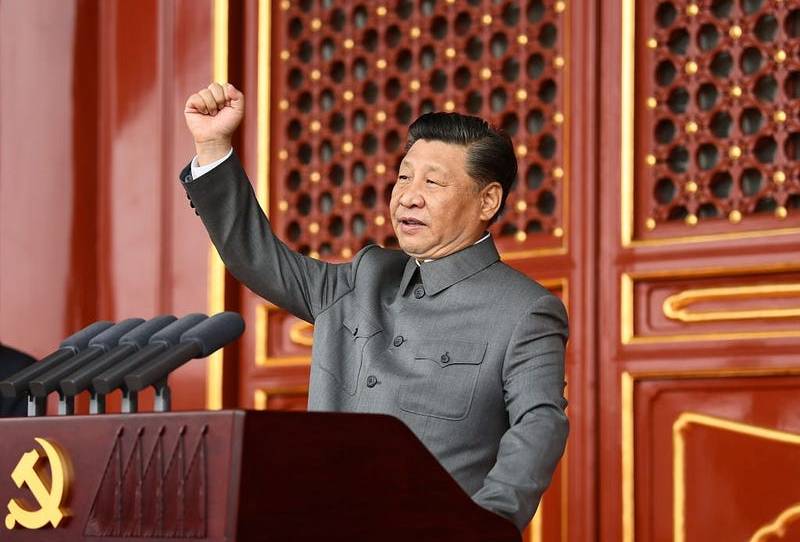Xi Jinping Doesn’t Want to Admit He’s an Autocrat

On July 1, Xi Jinping delivered a speech commemorating the centenary of the Chinese Communist Party (CCP). For longtime Xi watchers, his address contained little, if anything, that was new. Still, the speech, which was transcribed into English and released on state-controlled media websites, provides a useful window into how Xi continues to see his party 100 years after its founding. With that framework in mind, here are some observations.
To be sure, Xi relied on standard CCP motifs. He preached the greatness of China’s ancient civilization and obsessed over the need for “national rejuvenation”—the main justification the CCP offers for its own existence. Xi repeated all of the historical grievances that the CCP has used as a pretext for its absolute power. “After the Opium War of 1840…China was gradually reduced to a semi-colonial, semi-feudal society and suffered greater ravages than ever before,” Xi lamented. This led to the country enduring decades of “intense humiliation,” in which the people “were subjected to great pain, and the Chinese civilization was plunged into darkness.” Since then, Xi said, “national rejuvenation has been the greatest dream of the Chinese people and the Chinese nation.” It’s a “dream” Xi says he and the CCP are making a reality.
But it is striking how much of Xi’s rhetoric is a mishmash of different concepts, some of which are directly at odds with one another. Careful readers will note ideological fault lines throughout Xi’s explanation of the CCP’s role.
Consider that Xi used the word “democratic,” in one form or another, at least several times to describe the party. He claims that the CCP achieved “great success” in the “new democratic revolution” of the 20th century. “The victory of the new-democratic revolution put an end to China’s history as a semi-colonial, semi-feudal society, to the state of total disunity that existed in old China, and to all the unequal treaties imposed on our country by foreign powers and all the privileges that imperialist powers enjoyed in China,” Xi claimed.